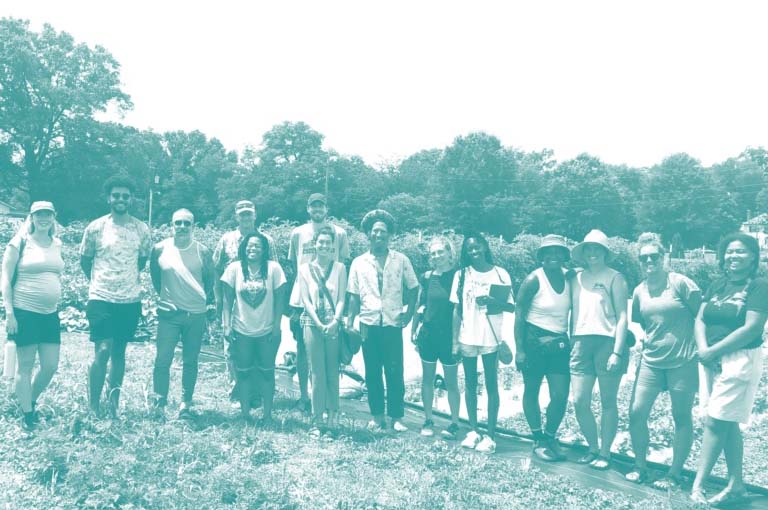This is the third installment in a blog series featuring the winners of our 2022 Muck Boot Chapter Capacity Grant program. The grant program awarded five Young Farmers chapters with $5,000 to compensate their organizing efforts or to cover expenses for a specific project, such as COVID-19 response efforts, racial equity trainings, or virtual platforms to increase connectivity.
Like in so many other National Young Farmers Coalition chapters across the country, young farmers in Central Virginia are up against some major challenges to launching their businesses, including access to affordable, quality farmland, capital, skilled labor, and marketing support. And since most of the farmers in Charlottesville and Richmond are urban farmers, access to land is an even bigger challenge due to competition from developers, land prices, and zoning laws.
The Central Virginia Young Farmers Coalition was launched in the summer of 2021 by several young farmers from the Richmond-Charlottesville area who were interested in coming together to find solutions to these challenges their farming communities face, and to share skills, knowledge, and resources.
The Muck Boot Chapter Capacity Grant Program awarded the chapter, and four others across the country, $5,000 to support their chapter goals. In April, the chapter used some of their award to host a chapter launch event to help recruit new members and for current members to get to know each other better and plan future work.
The event was hosted at Sankofa Community Orchard in Richmond, and featured locally-made food and drink, live music, and an inspiring talk by Duron Chavis, one of the leaders of the local food movement in Richmond. Chavis is an organizer, educator, and the inaugural director of the Harding Street Urban Ag Center; a recreation center repurposed into an indoor farm. He believes that local food systems can be “a tool to build equity and community resiliency” and that “urban agriculture can transform low-income and marginalized communities from the inside out.” Duron also runs a Land Justice Fund to support land ownership for BIPOC farmers who have been dispossessed of land through a history of racist policymaking.
Duron spoke about the shared needs of many of the young and BIPOC farmers he works with in Richmond. Chapter leaders asked the group questions about their intentions and dreams for the growing season; what support they would like from the chapter; what skills and information they want to learn; and what is missing in their farming community. The answers from these questions will help guide the work of the chapter forward in 2022 and beyond. Big goals for the chapter moving forward include collective action around the 2023 Farm Bill reauthorization, desire to learn tools to shift power within the community, farm skillsharing sharing, and coalition building.
The chapter event, and Duron’s talk, also inspired an idea to start a farmer cooperative in Richmond for sharing tools, knowledge and services, seeds, compost, and other agricultural needs. When farmers are just getting started, equipment like tillers and tractors are cost prohibitive, and a cooperative can be a valuable way to build a collection of shared resources. With the help of National Young Farmers Coalition organizers, the chapter will be applying for USDA support to launch the cooperative.
Later in the summer, the chapter will be using remaining grant funds to host a seed-saving workshop at Acorn Community Farm in Lousa, Virginia, and to provide scholarships for chapter members to attend.
Though the chapter is less than a year old, and the pandemic slowed plans for in person meetings in 2022, chapter members have many big dreams for the future of farming in the state, for changing policy in the next farm bill, and for strengthening the young farmer community in Central Virginia.

 United States
United States

 European Union
European Union
 Germany
Germany
 United Kingdom
United Kingdom
 Australia
Australia
 New Zealand
New Zealand



